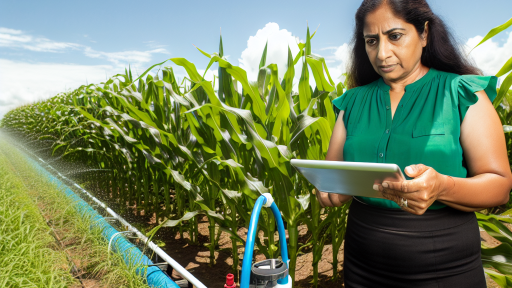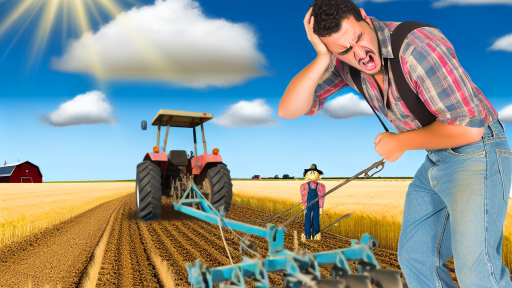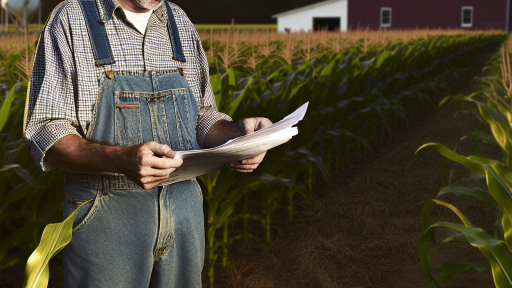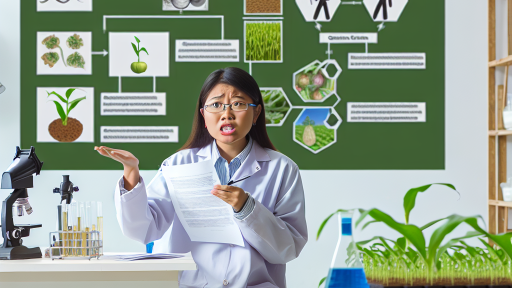Introduction to Sustainable Farming
Definition of Sustainable Farming
Sustainable farming refers to agricultural practices that focus on environmental health.
This approach aims to produce food while maintaining ecological integrity.
It emphasizes the importance of preserving natural resources for future generations.
In essence, sustainable farming balances economic viability and environmental protection.
Importance of Sustainable Farming
Sustainable farming plays a critical role in addressing food security challenges.
It reduces reliance on chemical fertilizers and pesticides, fostering healthier ecosystems.
Moreover, sustainable practices contribute to mitigating climate change effects.
They enhance soil fertility and biodiversity, creating resilient agricultural systems.
Consequently, this approach ensures that farming remains productive for years to come.
Key Principles of Sustainable Farming
- Conservation of soil and water resources is paramount.
- Crop rotation and diversification improve soil health and reduce pests.
- Integrated pest management minimizes the use of harmful chemicals.
- Agroecology encourages the use of natural systems and processes.
- Community engagement and education foster sustainable practices.
Benefits of Sustainable Farming
Sustainable farming significantly benefits rural communities by boosting local economies.
It also improves the nutritional value of food produced, promoting public health.
Additionally, such practices foster strong relationships between farmers and consumers.
This approach encourages support for local markets and organic products.
Ultimately, sustainable farming lays the groundwork for a healthier planet.
Overview of Recent Laws Affecting Sustainable Farming Practices
Recent legislation impacts sustainable farming in significant ways.
Transform Your Agribusiness
Unlock your farm's potential with expert advice tailored to your needs. Get actionable steps that drive real results.
Get StartedThese laws target water use, land management, and pesticide practices.
Farmers must adapt their techniques to comply with new regulations.
Water Conservation Initiatives
New laws emphasize efficient water usage in agriculture.
These initiatives encourage farmers to adopt smarter irrigation methods.
For instance, the implementation of drip irrigation systems is on the rise.
Farmers receive incentives for reducing water waste in their operations.
Land Management Regulations
Another significant area of focus involves land management practices.
Legislation now requires crop rotation to prevent soil depletion.
Moreover, cover cropping is encouraged to enhance soil health.
This shift promotes biodiversity and resilience in farming ecosystems.
Pesticide Use Limitations
Recent laws also impose stricter guidelines on pesticide use.
Farmers must now use integrated pest management techniques.
This approach minimizes chemical reliance and promotes natural pest control.
Adopting alternative methods contributes to sustainable farming goals.
Support for Organic Practices
Additional regulations support organic farming practices.
Farmers can access grants for transitioning to organic methods.
These laws help expand market opportunities for certified organic products.
As a result, the demand for organic produce continues to rise.
Community and Economic Impact
Lastly, recent laws positively affect local communities and economies.
By adopting sustainable practices, farmers can attract eco-conscious consumers.
This shift promotes local food systems and boosts rural economies.
Sustainable farming aligns with consumer trends and community needs.
Key Sustainable Farming Techniques
Crop Rotation
Crop rotation involves alternating the types of crops grown in a specific area.
This technique helps improve soil health and fertility.
Showcase Your Farming Business
Publish your professional farming services profile on our blog for a one-time fee of $200 and reach a dedicated audience of farmers and agribusiness owners.
Publish Your ProfileIt also reduces the buildup of pests and diseases.
Farmers can enhance crop yields by changing the crops each season.
Moreover, crop rotation can minimize the need for chemical fertilizers.
Agroforestry
Agroforestry integrates trees and shrubs into agricultural landscapes.
This practice boosts biodiversity and provides habitat for wildlife.
Consequently, it improves soil structure and health.
Agroforestry can also create additional income streams for farmers.
By combining crops and trees, farmers diversify their production systems.
Organic Farming
Organic farming focuses on using natural methods for pest control and fertilization.
This technique eliminates the use of synthetic chemicals and genetically modified organisms.
Farmers can enhance soil health through composting and cover cropping.
Organic practices promote ecological balance and sustainable crop production.
Consumers increasingly demand organic products, benefiting farmers economically.
Explore Further: Zoning Compliance Tips for Modern Farmers
The Role of Technology in Promoting Sustainable Agriculture Under New Regulations
Innovative Tools for Farmers
Technology equips farmers with innovative tools to enhance sustainability.
For instance, drones assist in monitoring crop health efficiently.
These aerial devices provide precise data for better decision-making.
Moreover, smart sensors help in optimizing water usage.
This technology reduces waste and conserves vital resources.
Data-Driven Approaches
Big data analytics revolutionizes farming practices.
Farmers analyze patterns to forecast yields and mitigate risks.
This analytical approach allows for informed decision-making.
Consequently, farmers can adapt strategies to changing conditions.
Precision Agriculture Techniques
Precision agriculture improves efficiency and sustainability in farming.
This method utilizes GPS technology for field mapping.
Farmers can apply inputs only where necessary.
Essentially, this practice reduces chemical usage significantly.
As a result, it minimizes environmental degradation.
Renewable Energy Integration
Integrating renewable energy sources further promotes sustainability.
Solar panels provide clean energy for operations on farms.
Wind turbines also offer an alternative energy option.
This transition reduces reliance on fossil fuels.
Farmers who adopt these technologies can lower energy costs over time.
Collaboration and Knowledge Sharing
Technology fosters collaboration among farmers and researchers.
Online platforms help share best practices and success stories.
As a result, collective knowledge accelerates sustainable practices.
Farmers learn from each other’s experiences, improving effectiveness.
This community-driven approach encourages continuous innovation.
Gain More Insights: Strategies for Exporting Farm Produce
Government Incentives and Support for Sustainable Farming Initiatives
Introduction to Government Support
Governments around the world promote sustainable farming through various incentives.
Showcase Your Farming Business
Publish your professional farming services profile on our blog for a one-time fee of $200 and reach a dedicated audience of farmers and agribusiness owners.
Publish Your ProfileThese incentives encourage farmers to adopt eco-friendly practices.
Moreover, they seek to enhance food security and protect natural resources.
Types of Incentives Available
- Financial subsidies for implementing sustainable practices.
- Grants for research and development in sustainable farming technologies.
- Tax breaks for farmers using renewable energy sources.
- Low-interest loans for purchasing eco-friendly equipment.
Case Studies of Successful Programs
The USDA’s Environmental Quality Incentives Program exemplifies effective government action.
This program provides substantial financial assistance to participants.
In addition, the California Department of Food and Agriculture offers a similar initiative.
This program focuses on water efficiency and soil health improvements.
Long-term Benefits of Government Support
These initiatives create resilient farming communities.
Incentives improve the economic viability of sustainable practices.
They also enhance environmental stewardship among farmers.
Ultimately, these efforts lead to healthier ecosystems and communities.
Future Directions for Incentives
Looking ahead, more streamlined processes will enhance accessibility.
Incorporating feedback from farmers can improve existing programs.
Furthermore, increasing educational resources will promote awareness of available incentives.
Government support is vital for fostering sustainable farming practices.
See Related Content: Tax Filing Tips for Successful Farmers
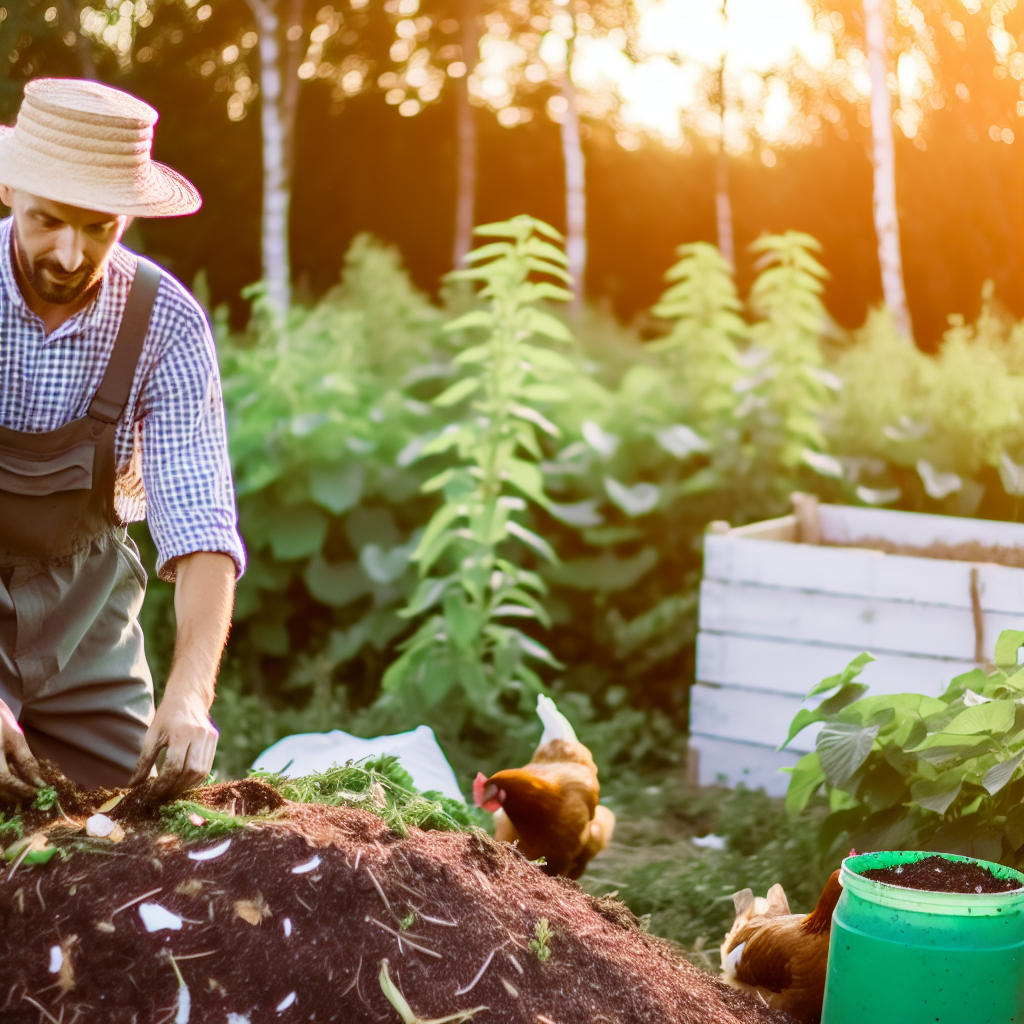
Challenges Farmers Face in Adopting Sustainable Practices amidst New Laws
Understanding Regulatory Changes
Farmers often struggle to keep up with evolving regulations.
New laws can create confusion regarding compliance requirements.
This uncertainty can hinder the adoption of sustainable practices.
Moreover, different states may implement differing regulations.
Farmers must navigate this complex landscape carefully.
Financial Constraints
Funding is a significant barrier to adopting sustainable methods.
Many farmers face tight budgets that restrict their options.
Implementation of sustainable practices often requires upfront investment.
A lack of financial resources can deter necessary changes.
Farmers may hesitate to take risks without financial support.
Knowledge Gaps
Local knowledge on sustainable practices may be limited.
Access to information and education can vary widely among regions.
Farmers may not be aware of the latest sustainable techniques.
This gap can lead to poor decision-making.
Training programs can help bridge this knowledge divide.
Market Access Challenges
Establishing connections to markets can be difficult.
Sustainable products often require different marketing strategies.
Farmers may struggle to find buyers for organic products.
Additionally, premium pricing can deter some consumers.
Creating consumer awareness is crucial for market growth.
Cultural Resistance
Tradition heavily influences farming practices in many communities.
Some farmers may resist new techniques due to tradition.
Cultural values play a significant role in their decisions.
Education can help shift perceptions over time.
Open dialogue among stakeholders can foster positive change.
Showcase Your Farming Business
Publish your professional farming services profile on our blog for a one-time fee of $200 and reach a dedicated audience of farmers and agribusiness owners.
Publish Your ProfileEnvironmental Challenges
Climate change poses significant risks to sustainable practices.
Farmers face unpredictable weather patterns and extreme events.
Soil degradation can also undermine sustainable efforts.
Effective resilience strategies are essential for overcoming these obstacles.
Research and development can drive innovative solutions.
Find Out More: Differences Between Organic And Conventional
Case Studies: Successful Implementation of Sustainable Farming Due to Legislative Changes
Case Study: Green Valley Farms
Green Valley Farms adopted sustainable practices after new regulations were passed in 2022.
The legislation incentivized organic farming methods across the region.
As a result, Green Valley transitioned from conventional methods to organic farming.
This shift significantly reduced pesticide use and improved soil health.
Additionally, profits increased by 30% within the first year of implementation.
Case Study: Westfield Cooperative
Westfield Cooperative experienced a turnaround thanks to updated farming laws.
These laws implemented stricter water conservation measures.
Consequently, the cooperative adopted drip irrigation systems.
This change led to a 40% reduction in water usage.
Moreover, crop yield improved by 25% without increasing resource consumption.
Case Study: Hilltop Orchards
Hilltop Orchards benefited from a new subsidy program for sustainable practices.
This program encouraged growers to adopt integrated pest management techniques.
As a result, pesticide application dropped significantly across orchards.
Furthermore, it led to better fruit quality and increased market demand.
The orchard reported a 50% increase in customer satisfaction ratings.
Case Study: Riverbend Dairy
Riverbend Dairy implemented sustainable grazing practices following legislative changes.
The new laws promoted soil restoration and wildlife habitat preservation.
Riverbend adopted rotational grazing techniques to support these goals.
This method improved pasture quality and animal health.
Eventually, the dairy’s milk production rose by 20%.
Case Study: Coastal Veggies
Coastal Veggies leveraged tax breaks for adopting environmentally friendly farming techniques.
The farm began using cover crops to enhance soil fertility.
This practice reduced erosion and improved water retention.
Subsequently, Coastal Veggies experienced higher yields during dry seasons.
Their profits increased as they reduced fertilizer costs.
Future Trends in Sustainable Farming and Anticipated Legal Developments
Emerging Sustainable Practices
Farmers are increasingly adopting regenerative agriculture methods.
This approach enhances soil health through biodiversity.
Cover cropping is becoming widely popular for soil protection.
Moreover, agroforestry integrates trees into farming systems.
This practice helps in carbon sequestration while boosting yields.
Technological Innovations
Technology plays a vital role in sustainable farming.
Precision agriculture maximizes efficiency and reduces waste.
Farmers now use drones for monitoring crop health.
Additionally, data analytics informs better decision-making.
Showcase Your Farming Business
Publish your professional farming services profile on our blog for a one-time fee of $200 and reach a dedicated audience of farmers and agribusiness owners.
Publish Your ProfileThese tools help in optimizing resource use, such as water.
Impact of New Legislation
Recent laws encourage sustainable practices in farming.
Governments are offering incentives for eco-friendly practices.
Compliance with these laws is crucial for funding access.
Farmers are adapting their methods to align with legal requirements.
Consequently, new regulations could reshape industry standards.
Global Collaboration Efforts
International partnerships promote sustainable agricultural practices.
Organizations like the FAO support global sustainability initiatives.
These collaborations help in sharing knowledge and resources.
They also address climate change impacts on agriculture.
Furthermore, global trade policies are evolving to support sustainability.
Consumer Demand Shift
Consumers increasingly prefer sustainably sourced products.
This trend drives farmers to adopt better practices.
Transparency in food production is becoming essential.
Labeling initiatives inform consumers about sustainable choices.
Consequently, market shifts are encouraging responsible farming.
Future Legal Developments
Anticipated legal changes will likely emphasize sustainability.
Future legislation may mandate lower emissions in agriculture.
Farmers should prepare for stricter environmental regulations.
There is also a potential for increased funding for green technologies.
Thus, staying informed about legal changes remains critical for farmers.
Additional Resources
Farm Animal Welfare Policies Cover Breeding Sows, Veal Calves, or …

